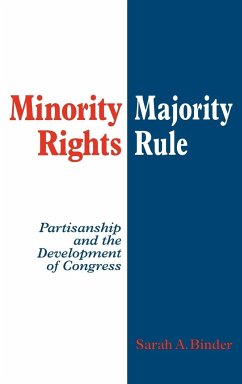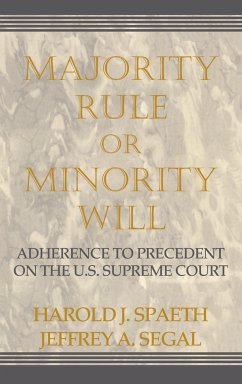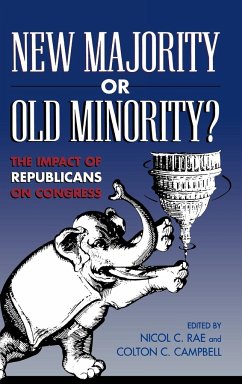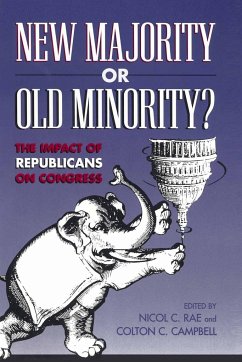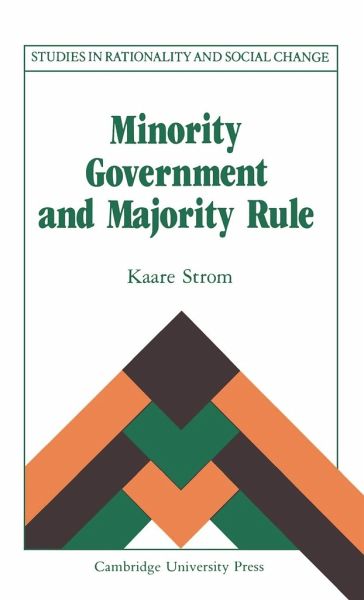
Minority Government and Majority Rule

PAYBACK Punkte
63 °P sammeln!
Minority governments in parliamentary democracies are conventionally considered to be unstable and ineffective aberrations from the principle of majority rule. Through analysis of over 350 postwar governments, the author shows that minority governments are neither exceptional nor unstable but in fact a common feature of parliamentary democracies and frequently perform as well as, or better than, majority coalitions. Using the Italian and Norwegian governments as case studies, he suggests that minority governments are particularly likely to form when parties anticipate competitive elections and...
Minority governments in parliamentary democracies are conventionally considered to be unstable and ineffective aberrations from the principle of majority rule. Through analysis of over 350 postwar governments, the author shows that minority governments are neither exceptional nor unstable but in fact a common feature of parliamentary democracies and frequently perform as well as, or better than, majority coalitions. Using the Italian and Norwegian governments as case studies, he suggests that minority governments are particularly likely to form when parties anticipate competitive elections and when opposition parties are able to influence legislative decisions. As an original attempt to document and explain a very common form of government in parliamentary democracies, this book will contribute significantly to the understanding of the importance of electoral competition in democratic politics.
Table of contents:
1. The problem of minority government; 2. The rationality of minority government formation; 3. Forming minority governments; 4. Minority governments in office; 5. Italy: the politics of cooperation and defection; 6. Norway: the politics of inclusion; 7. Reassessing minority governments; Appendices; Notes; References.
Through the analysis of over 350 post war governments and using the Italian and Norwegian governments as case studies, the author shows that minority governments are, contrary to conventional thinking, neither exceptional nor unstable, but in fact are a common feature of parliamentary democracies and frequently perform as well as, or better than, majority coalitions.
Table of contents:
1. The problem of minority government; 2. The rationality of minority government formation; 3. Forming minority governments; 4. Minority governments in office; 5. Italy: the politics of cooperation and defection; 6. Norway: the politics of inclusion; 7. Reassessing minority governments; Appendices; Notes; References.
Through the analysis of over 350 post war governments and using the Italian and Norwegian governments as case studies, the author shows that minority governments are, contrary to conventional thinking, neither exceptional nor unstable, but in fact are a common feature of parliamentary democracies and frequently perform as well as, or better than, majority coalitions.





